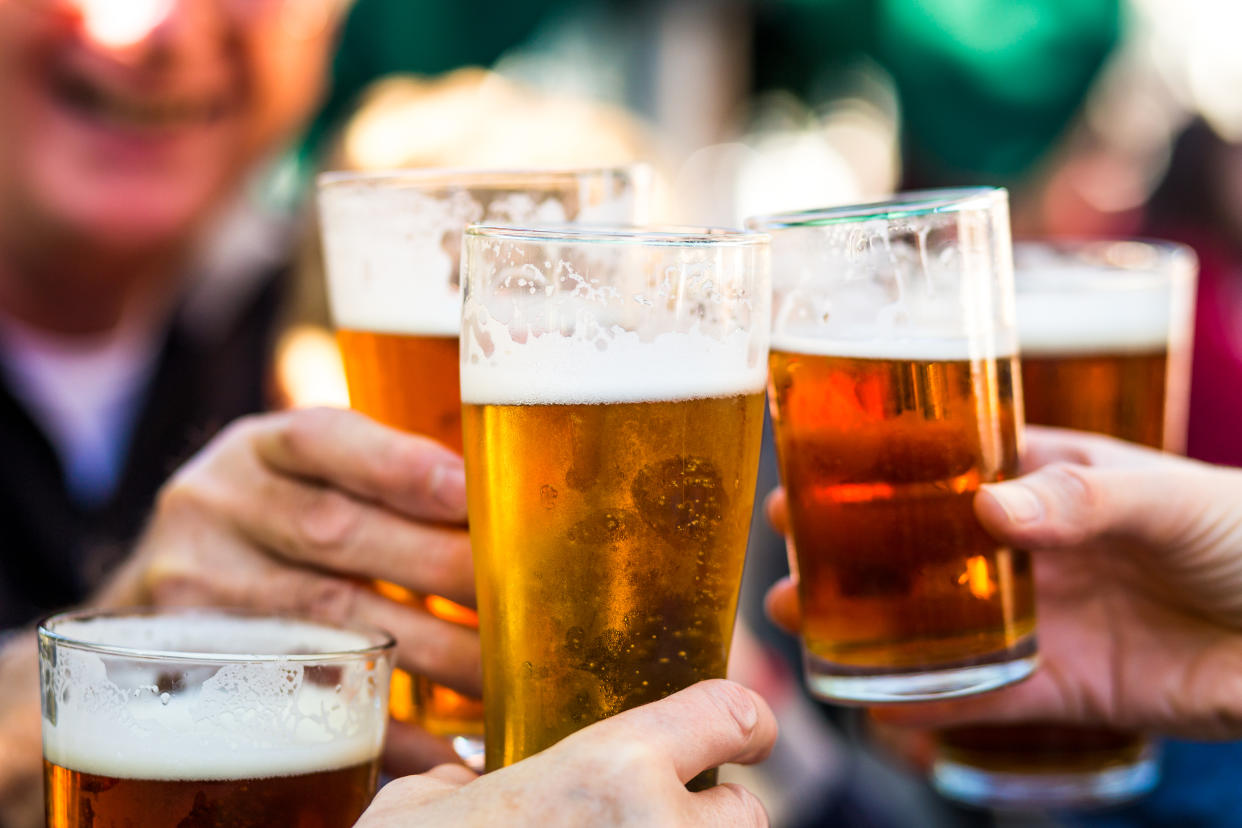Beer fans rejoice – the popular tipple can be 'very, very healthy', a scientist says

Beer fans can rejoice after an expert has claimed certain brands of the popular tipple are “very, very healthy”.
A scientist from the University of Amsterdam believes strong Belgian beers – such as Hoegaarden, Westmalle Tripel and Echt Kriekenbier – help boost gut bacteria.
The double fermentation process of these beers specifically is said to produce acids that kill “bad bugs”.
While this isn’t free rein to overindulge, the scientist claims a beer a day could do you the world of good.
READ MORE: Gut bacteria work in teams – here's why that's important for your health
Most beers sold in UK pubs are fermented just once, The Independent reported. Repeating the process creates a drier flavour, while also boosting the alcohol content.
This second fermentation also introduces another strain of yeast, which may produce bacteria-killing acids.
Speaking at an event held by the probiotic-drink company Yakult, Prof Eric Claassen said: “You are getting a stronger beer that is very, very healthy.
“We don’t want to give people a licence to drink more beer.
“In high concentrations alcohol is bad for the gut, but if you drink just one of these beers every day it would be very good for you.”
READ MORE: Gut bacteria may play a role in development of ALS
Foods that introduce good bacteria into the gut are known as probiotics. The most common examples include yoghurts, fermented foods like kimchi, and supplements.
Evidence suggests that probiotics may ease irritable bowel syndrome or help prevent diarrhoea when taking antibiotics, according to the NHS.

Antibiotics work to kill pathogens, but may also remove some of the “good bacteria” in the gut, allowing “bad bugs” to flourish.
The benefits of probiotics have reportedly been known for hundreds of years.
“In the Middle Ages people made beer because the water was not drinkable,” Prof Claassen said.
“The yeast killed off the bad bacteria in the water, so it was much safer to drink beer rather than water,” The Telegraph reported.
Pasteurising beer to kill off pathogens and extend its shelf life means it is rarely probiotic today.
READ MORE: The link between gut health and autoimmune diseases
For those looking to boost their “good bacteria”, the scientists stress not to overindulge.
Excessive alcohol has been linked to seven different types of cancer, as well as liver disease, stroke and even dementia.
While Prof Claassen may advise a beer a day, DrinkAware recommends abstaining from alcohol entirely for several days a week.
Probiotics can be added to your diet in other, less risky ways. Although usually considered safe, they are a “food” not a medicine, and are therefore not subject to the same rigorous testing as drugs.
When it comes to supplements, you cannot guarantee the probiotic “dose” on the label is genuine or will survive the gastrointestinal tract.
There is also likely to be a “huge difference” between the probiotics that show effectiveness in clinical trials and the supplements or yoghurts in shops, the NHS adds.
Introducing more prebiotics into your diet could also help. These indigestible food ingredients, like fibre in fruit and vegetables, act as “fertiliser” to stimulate the growth of good bacteria in the gut.


